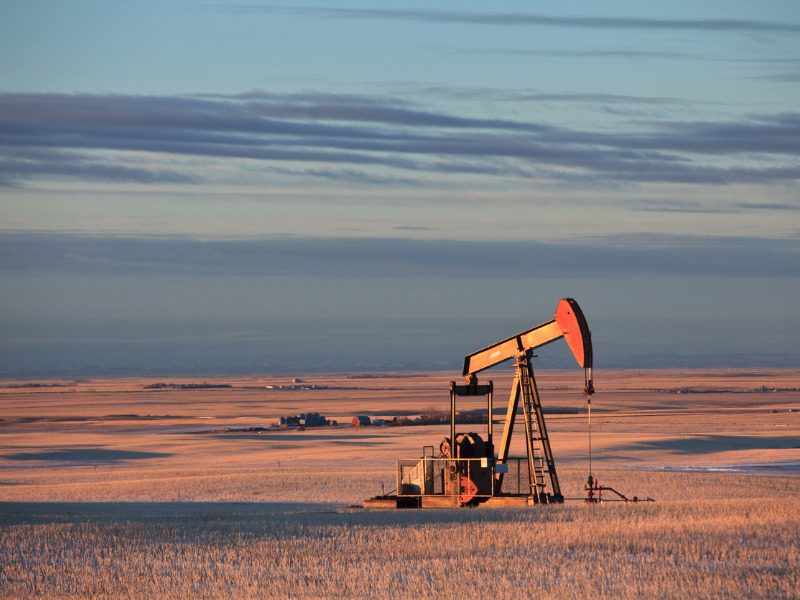Alberta releases liability estimate for well cleanup

Alberta’s oil and gas producers spent nearly $700 million in 2022 on cleaning up the hundreds of thousands of old wells that dot the province, the regulator’s first report on the extent of those liabilities indicates.
That’s 65 per cent more than they were required to spend under provincial rules, which took 8,000 inactive wells off the books, the report says.
“Industry is moving infrastructure toward closure,” said Chad Newton, the regulator’s manager of planning. “Industry did a good job.”
But the report also acknowledges serious information gaps and suggests 2022’s closure totals may have been a one-off. It also repeats a figure of $33 billion worth of environmental liability from the remaining wells — a figure critics say is far too low and based on old cost estimates the auditor general has already criticized.
“They’re using a system that they’ve admitted underestimates liabilities,” said Martin Olszynski, a University of Calgary resource lawyer and frequent critic of Alberta’s remediation policies.
Alberta has 466,000 oil and gas wells. The report says only about a third of them are active and only about one-tenth produce more than 10 barrels a day. About a fifth have been reclaimed.
The report says more than $1.2 billion was spent on well closure in 2022. That reduced the number of inactive wells in Alberta by nine per cent in a single year.
Related: The estimated cost of cleaning Canada’s orphan oil and gas wells
It found that 90 per cent of licence holders complied with closure spending requirements. Those that didn’t make up only one per cent of the total spending requirement.
Previous well closure programs allowed companies to focus on groups of wells that were relatively easy to clean up. The fact $145 million was spent in 2022 on remediation suggests that’s no longer the case, said liability adviser Anita Lewis.
“The remediation ones typically are the more difficult sites because they have contamination associated with that,” she said.
The report found financially shaky companies accounted for seven per cent of the province’s well liabilities. It also concluded that the regulator has no information on the remediation status of nearly a quarter of oil and gas facilities other than wells — although that information is being gathered, it said.
Final remediation spending figures from 2023 aren’t yet available.
But much of the 2022 money — $383 million — came from the Ottawa-funded Site Rehabilitation Program. The program budgeted less than half that in 2023. Spending from the Orphan Well Association, an industry-funded group that looks after wells with no remaining owner, was also expected to drop.
So despite requirements for industry to spend $700 million, the report says total spending on cleanup likely fell last year by nearly $400 million.
“It would appear the spending has already peaked,” said Olszynski.
Related: Oil well cleanup program listed as ‘key objective’ in Alberta’s pre-election budget
Olszynski said the report’s liability figure was derived at least partly from estimates of well cleanup costs that were first published in 2015. That was pointed out in March by Alberta’s auditor general, but they’re still being used, Olszynski said.
“How are they still publishing numbers that they know are incorrect?” he asked.
David Hardie, the regulator’s manager of liability management, acknowledged the liability estimate is wobbly.
“We can’t say it’s an underestimate (or) an overestimate,” he said.
Hardie said the regulator will calculate liability in the future based on actual industry-reported costs of remediation. That data isn’t in yet.
“We are going to replace that methodology once we receive this information,” Hardie said.
Richard Wong, vice-president of the Canadian Association of Petroleum Producers, said the report shows Alberta’s inactive well inventory continues to decline. That drop continued into 2023, he said.
“While there is more work to do to reduce inventories, (the association) is proud of the recent progress and confident that the upstream industry is on the right track.”
Alberta’s ministers of energy and environment — both of whom declined interview requests — welcomed the report in emailed statements.
“The regulator’s first performance report shows how Alberta’s promise to take bold and strong action under the liability management framework to clean up inactive oil and gas sites is making a big difference,” said Alberta Energy’s Brian Jean.
From Alberta Environment and Protected Areas, Rebecca Schulz said the report shows the government is meeting its promises and said new programs to speed up issuing reclamation certificates are on their way.
“We will continue looking at new ways to speed up closure and cleanup work while maintaining world-class environmental standards.”
Feature image by iStock.com/ImagineGolf



